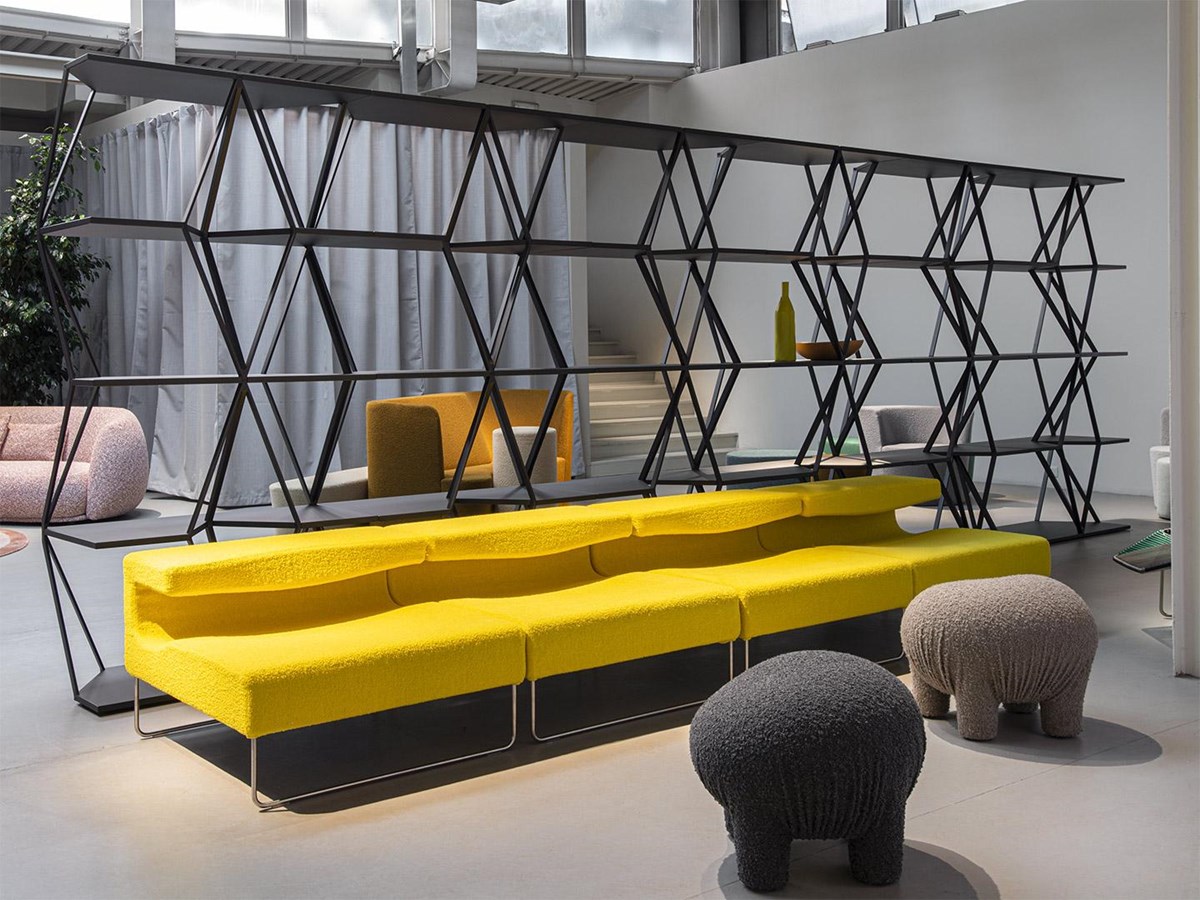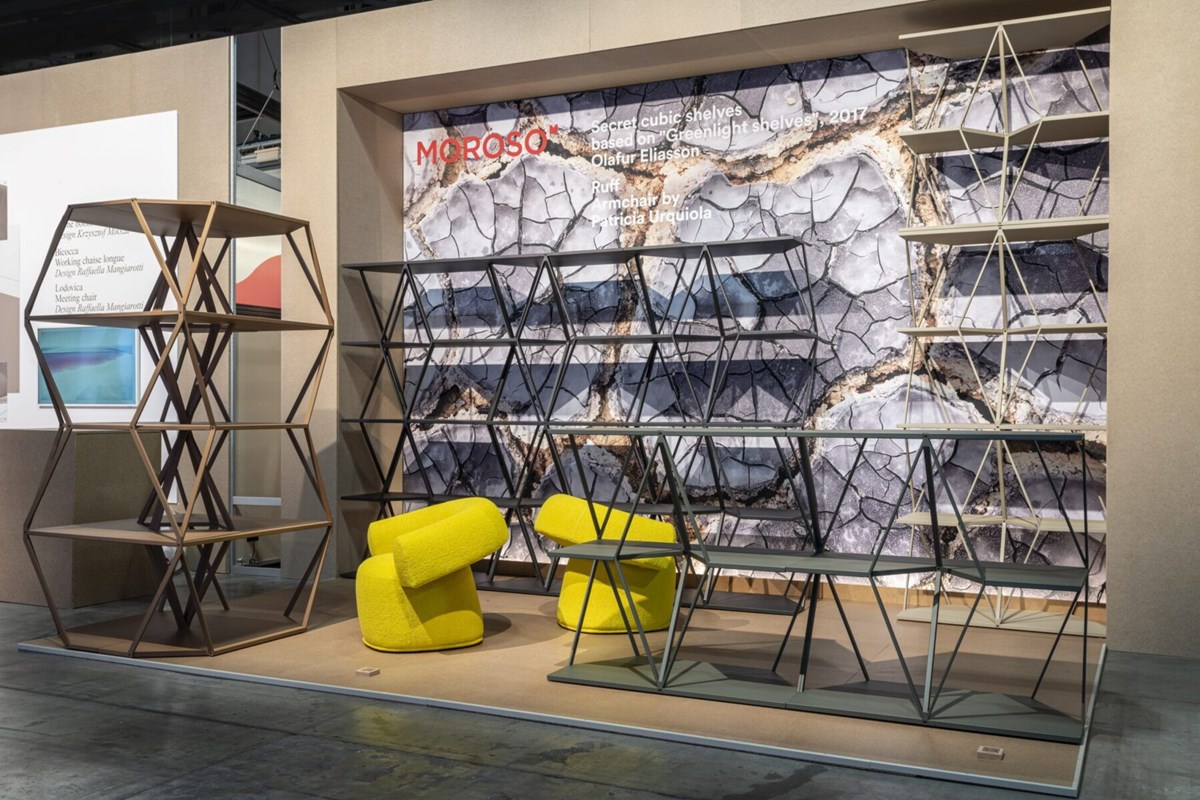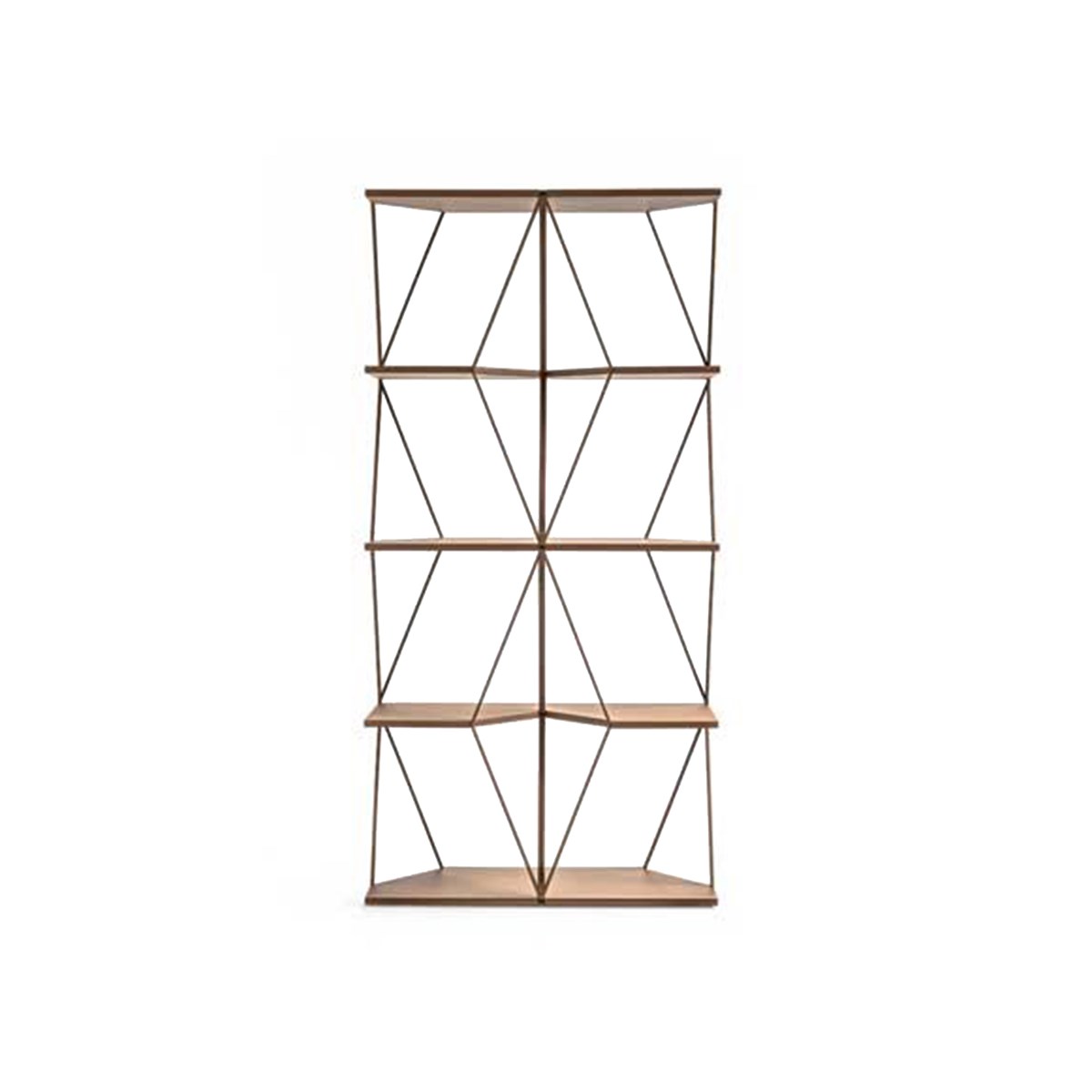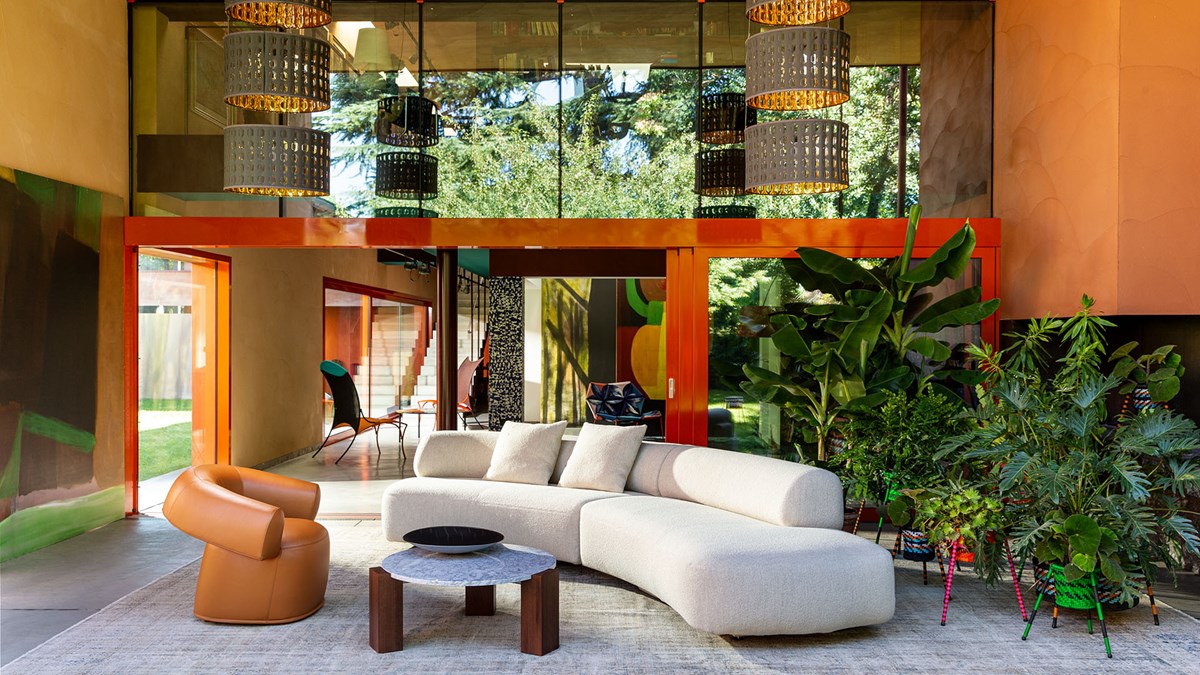Frame-Shift
- Designer:
- Gabriele and Oscar Buratti
- Brand:
- Moroso
We don't appear to have any products related to your search term. Please try again.
Shipping and discount codes are added at checkout.




The Secret Cubic Shelves are available in a range of finish options, please enquire to view the full library of available options.
Moroso presents “Secret Cubic Shelves”, designed by Icelandic-Danish artist Olafur Eliasson.
A result of the artist’s intensive, decades-long engagement with geometry, the shelves are derived from a stackable rhomboid module that has featured in his oeuvre since 2015 – in works like Less ego wall, 2015, first shown at Moderna museet, Stockholm; the window-based artwork La congiuntura del tempo (Tempo junction), 2017, at Agnelli Foundation, Turin; and the sculpture How to build a sphere out of cubes, 2018, at Texas A&M University. A skeletal variation of the form was also central to Eliasson’s Green light – An artistic workshop, a project that took place at Viva Arte Viva, the 57th Biennale di Venezia in 2017.
Invented by Einar Thorsteinn (1942–2015) and developed as one of the numerous geometric studies that Eliasson and Thorsteinn undertook at the studio in Berlin, the module is related to research begun by R. Buckminster Fuller years before. To arrive at the geometry, two identical cubes are rotated along a common diagonal axis until the edges of both cubes are divided according to the golden ratio. Drawing lines where the faces intersect (and cutting away the rest) leaves you with a polyhedron composed of twelve triangular faces.
Eliasson has long been interested in stackable space-filling forms as alternatives to conventional building techniques and for their suggestion of infinite continuation. The Quasi Brick, for example, forms the basis for the crystalline facades of Harpa Reykjavik Concert Hall and Conference Centre, created in collaboration with Henning Larsen Architects and completed in 2011.
“I am pleased to be sharing my Secret Cubic Shelves with a broader audience. What makes the shelves so special is that they are constructed around absence, and reflect thereby a hidden geometry that eludes immediate comprehension. Within their filigree structure, they bear the traces of past debates and host as-yet unthought futures.” – Olafur Eliasson
Originally produced as a prototype in multiplex and steel in 2017, this new edition is made entirely of iron (recycled and recyclable), with non-toxic powder coating. The solid and durable construction and short supply chain guarantee reduced waste of resources, raw materials and energy and, consequently, a lower environmental impact. The shelving system was created in collaboration with technical partner Fantin.
Moroso presents “Secret Cubic Shelves”, designed by Icelandic-Danish artist Olafur Eliasson.
A result of the artist’s intensive, decades-long engagement with geometry, the shelves are derived from a stackable rhomboid module that has featured in his oeuvre since 2015 – in works like Less ego wall, 2015, first shown at Moderna museet, Stockholm; the window-based artwork La congiuntura del tempo (Tempo junction), 2017, at Agnelli Foundation, Turin; and the sculpture How to build a sphere out of cubes, 2018, at Texas A&M University. A skeletal variation of the form was also central to Eliasson’s Green light – An artistic workshop, a project that took place at Viva Arte Viva, the 57th Biennale di Venezia in 2017.
Invented by Einar Thorsteinn (1942–2015) and developed as one of the numerous geometric studies that Eliasson and Thorsteinn undertook at the studio in Berlin, the module is related to research begun by R. Buckminster Fuller years before. To arrive at the geometry, two identical cubes are rotated along a common diagonal axis until the edges of both cubes are divided according to the golden ratio. Drawing lines where the faces intersect (and cutting away the rest) leaves you with a polyhedron composed of twelve triangular faces.
Eliasson has long been interested in stackable space-filling forms as alternatives to conventional building techniques and for their suggestion of infinite continuation. The Quasi Brick, for example, forms the basis for the crystalline facades of Harpa Reykjavik Concert Hall and Conference Centre, created in collaboration with Henning Larsen Architects and completed in 2011.
“I am pleased to be sharing my Secret Cubic Shelves with a broader audience. What makes the shelves so special is that they are constructed around absence, and reflect thereby a hidden geometry that eludes immediate comprehension. Within their filigree structure, they bear the traces of past debates and host as-yet unthought futures.” – Olafur Eliasson
Originally produced as a prototype in multiplex and steel in 2017, this new edition is made entirely of iron (recycled and recyclable), with non-toxic powder coating. The solid and durable construction and short supply chain guarantee reduced waste of resources, raw materials and energy and, consequently, a lower environmental impact. The shelving system was created in collaboration with technical partner Fantin.
Designer
The works of artist and designer Olafur Eliasson explore the relevance of art in the world at large.

